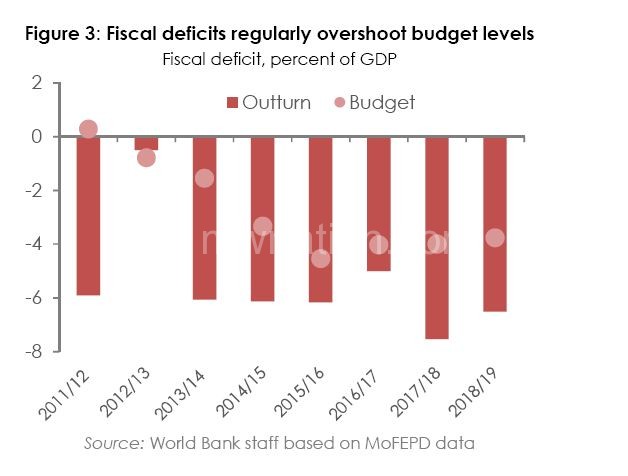Fiscal deficit cut difficult—AfDB
The African Development Bank (AfDB) says Treasury’s plan to reduce the fiscal deficit to 2.5 percent of gross domestic product (GDP) this fiscal year is a tall order.
In its annual publication, African Economic Outlook 2020 published on Thursday, the pan-African bank observes that with public debt rising above the sustainability threshold of 60 percent of GDP, fiscal space is tight.

AfDB observes that although economic growth could be reinforced by continuing macroeconomic stability, climate shocks, fiscal policy slippages and lower business confidence pose threats to the economy.
In the 2019/20 National Budget, the overall deficit is projected at K155.9 billion or 2.5 percent of GDP, which is a drop from last fiscal year’s K320.2 billion or 6.5 percent of GDP.
Reads the AfDB report in part: “Since 2016, fiscal slippages have exacerbated the fiscal deficit and the debt-to-GDP ratio rose from 30 percent to 62 percent between 2013 and 2019.
“Growth will be reinforced by continuing macroeconomic stability. The cautious monetary
easing in June 2019 signalled an attempt to stimulate demand.”
The bank says maintaining accommodative policy could propel capital flows, increase economic activity and restore growth since it supports credit to the private sector.
In the 2019/20 fiscal plan, domestic revenues are projected at K1.425 trillion or 22.7 percent of GDP, comprising K1.369 trillion tax revenue and K55.8 billion non-tax revenue.
Total expenditure is projected at K1.731 trillion or 27.6 percent of GDP, which is an increase of 20.1 percent from the 2018/19 fiscal year’s preliminary outcome of K1.441 trillion.
In the December 2019 Malawi Economic Monitor, World Bank senior country economist Patrick Hettinger observed that government has sustained high fiscal deficits, which are consistently above budgeted levels. This has forced government to rely on borrowing largely from the domestic market.
In an earlier interview, Malawi Confederation of Chambers of Commerce and Industry (MCCCI) chief executive officer Chancellor Kaferapanjira observed that budget deficit has been the characteristic of all the budgets of the past five years, resulting in unsustainable cumulative debt.
Minister of Finance, Economic Planning and Development Joseph Mwanamvekha admitted in his 2019/20 National Budget Statement that Treasury is facing challenges in fiscal deficits and public debt, with government operations recording fiscal deficits which have contributed to rising public debt. In the last fiscal year, a deficit of K320.2 billion came about because of a number of factors, including over-expenditures on interest payment; expenses in response to the impact of Cyclone Idai and non-disbursement of some programed budget support.





